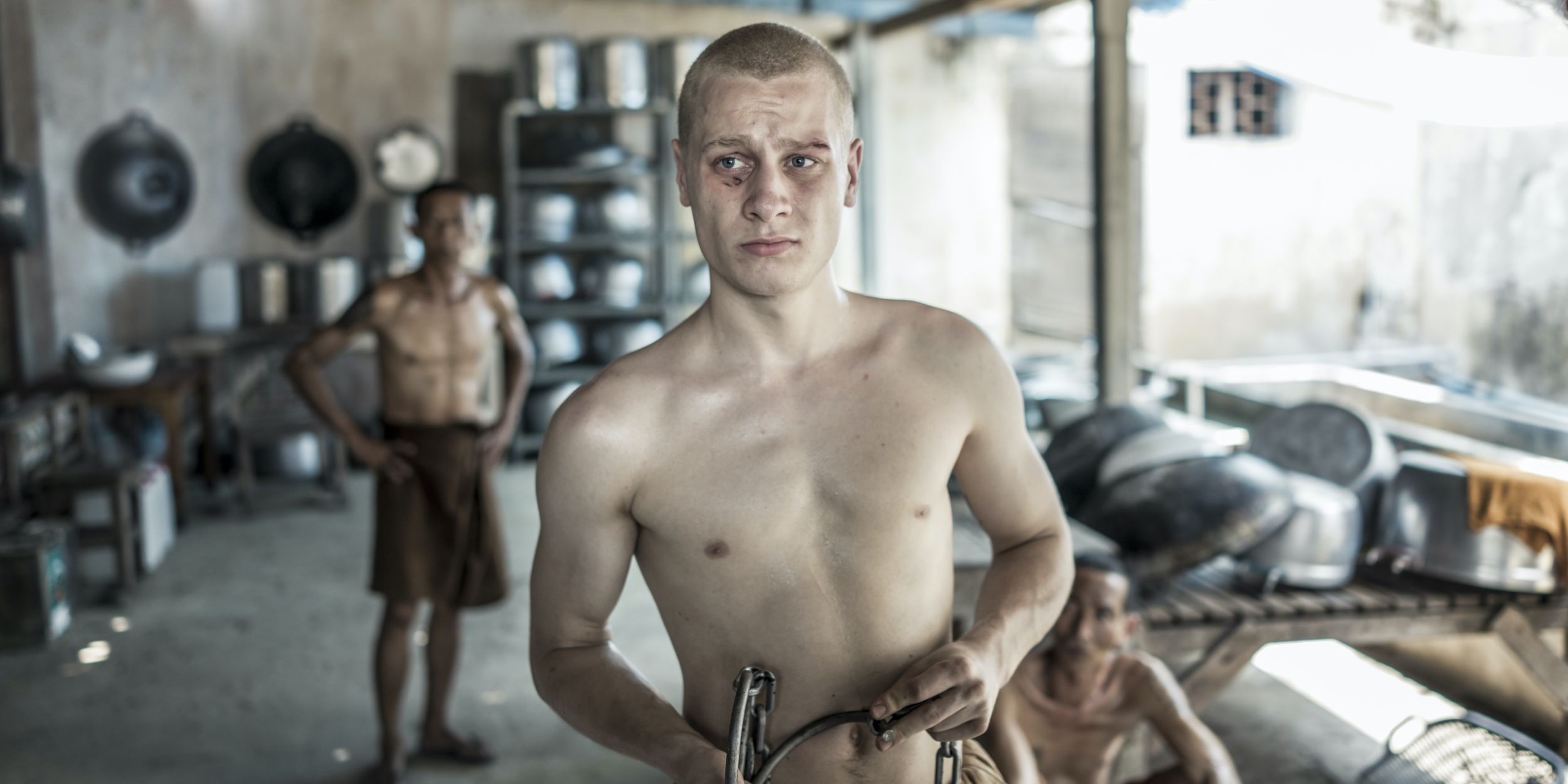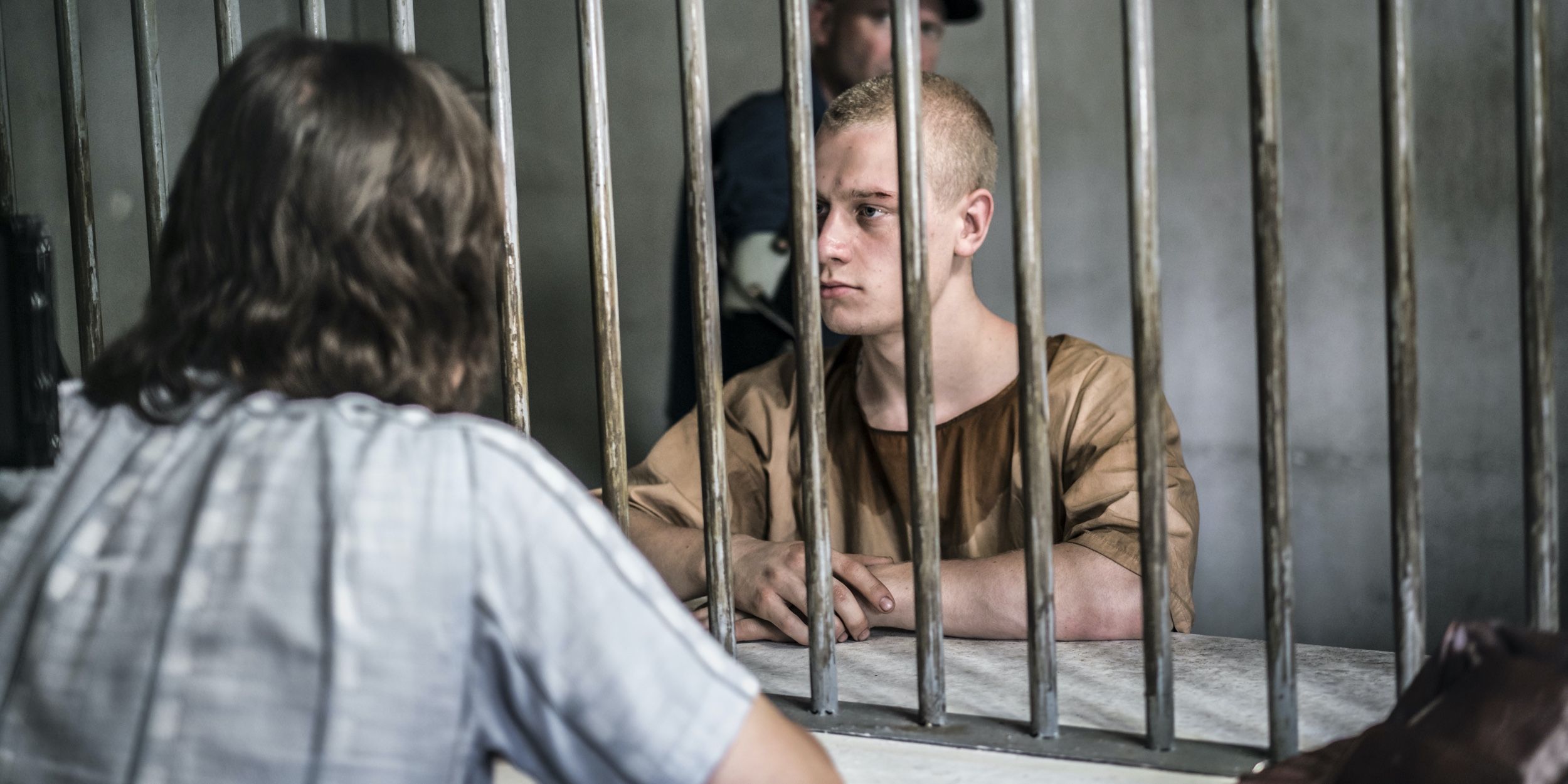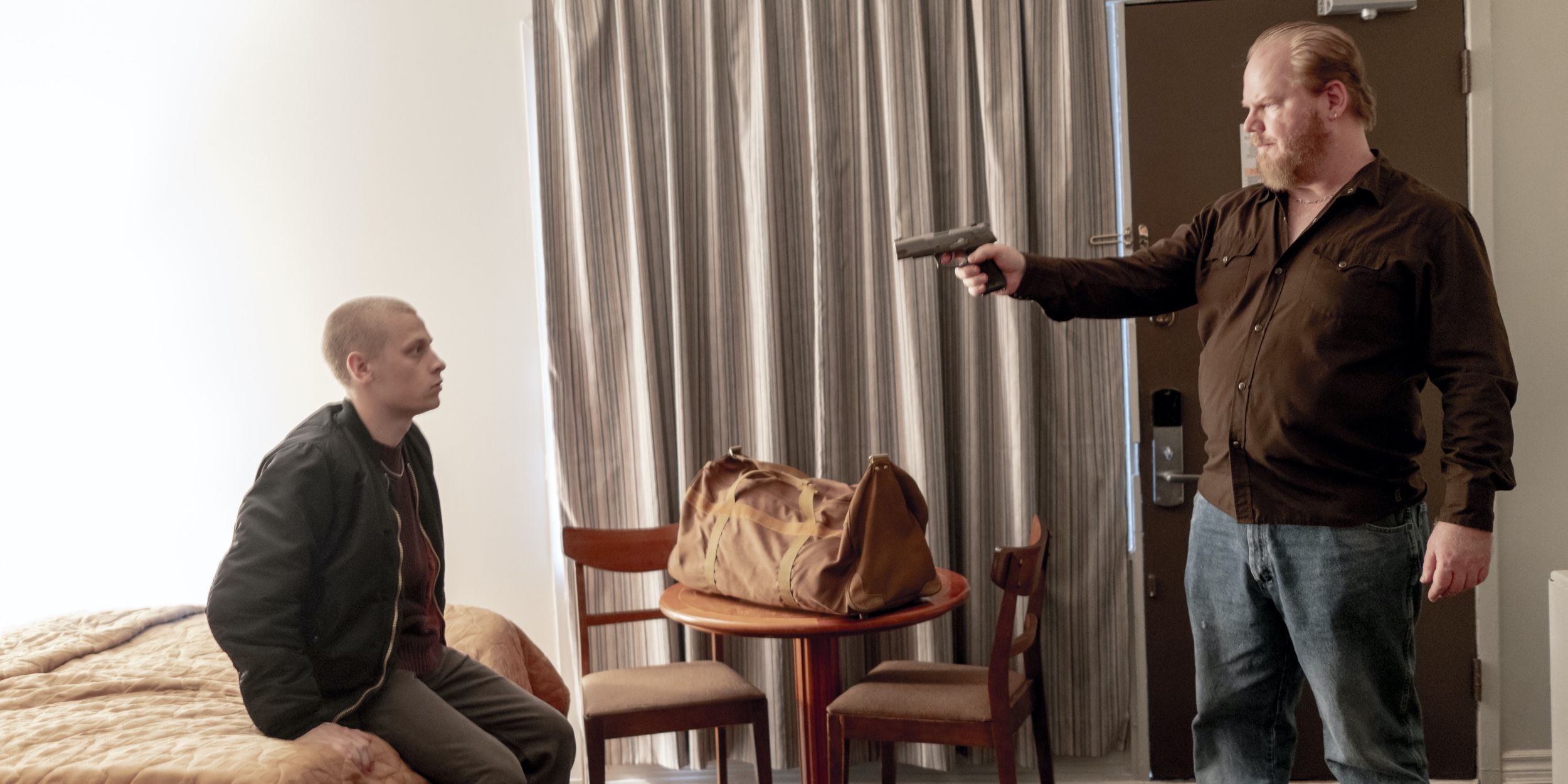Most Wanted, known as Target Number One in Canada, tells the story of a Québécois drug dealer who spent 8 years in a Thai jail after being framed for espionage. While it is based on the life of Alain Olivier, the film instead changes the protagonist to Daniel Léger. The investigative journalist who helps uncover the truth was Victor Malerek (Josh Hartnett) in both real life and fiction, however.
Antoine Olivier Pilon, who portrays Daniel in the movie, spoke to Screen Rant about the preparation he underwent in order to bring the harrowing tale to life as well as the benefits of working with director and screenwriter Daniel Roby.
This film is loosely based on true events. What kind of research did you do into your character and the events of the film? I understand that the subject this was based on was there with you.
Antoine Olivier Pilon: Yeah, exactly. [Alain Olivier] was there with us. To prepare for the role, the first thing I did was to sit down Alain. I had written down a list of questions I wanted to ask him to be able to get the sense of who I would be playing. Our director Daniel Roby also recommended that I watch the movie Trainspotting by Danny Boyle as a reference for the many drug-related scenes. Other than that, I had a three day training session for a combat scene that we shot in Bangkok, which was really awesome. I had actually not done that before. But that was pretty much it; just spending my days with Alain on set, hearing his stories. Because this guy has so many amazing stories, it's crazy.
You have the greatest acting burden in this film. How did you prepare yourself mentally to become a prisoner in a foreign land?
Antoine Olivier Pilon: We shot outside of Bangkok for about a week for all the prison scenes. And when I went there, we shot in an actual prison that was closed; they reopened it for the movie. They hired 375 extras for the prison scenes, and some of the extras were actual prisoners at the time the prison was open. So, I had these guys around me with full-on face tattoos. Pretty scary, but everyone was so nice.
All I had to do was put the chains on my feet and wear the prison outfits. Just standing in the middle of those guys, I had nothing else to do after that. It just felt so real for me to be there. So, there wasn't that much mental preparation on my end.
Was the film shot sequentially, or did they just throw you into the prison set from the beginning?
Antoine Olivier Pilon: Yeah, from the beginning. We started off with all the scenes in Thailand and the prison.
The connection between your character and Victor is really the backbone of the film. Can you talk to me about the chemistry between you and Josh Hartnett?
Antoine Olivier Pilon: Yeah, of course. I was kind of nervous to work with Josh. I really admire his work, and I know that he's worked with a lot of talented people that I really look up to. But as soon as I met with him in Bangkok, he immediately made me feel super comfortable. We had the chance to rehearse the few scenes that we have together, so honestly, I just wish we had more scenes together.
Daniel Roby wrote and directed this. As an actor, how does having the same person write and direct benefit your performance as an actor?
Antoine Olivier Pilon: That's a good question. I think, for me, the director is the person who I trust the most on set. He's the leader; he's the one that I like to follow all the time. On this one, he was both director and writer, and he was the only one really making all the decisions. So if I had questions for my character, I just sat down with Daniel and he would tell me exactly what he wanted. It was kind of a shortcut to not to get everyone's opinion on the role.
Daniel has worked on that project for over, I think, 12 years now. He is so passionate about that, and that's one of the reasons I enjoyed working with him so much. It's because he has been carrying this project with him for so long and trusting me with one of the main characters, which was just a blessing for me.
You also undergo a pretty physical transformation as well in the film. How did you prepare physically for such a draining role?
Antoine Olivier Pilon: I didn't. I had, in the past, some projects that required me to have a minimum training or to get a little bit more fit for the role. But when I got into the audition for this role, I didn't have any workouts to do. The only physical preparation I had to do was the the three day rehearsal we had for the big action scene in the prison.
Back when you initially got this role, did you imagine in pre-production just how timely this film would be during its release?
Antoine Olivier Pilon: I think they tried to release the movie last year, I think, but they had some problems and had to wait. I just like to believe that everything works out for the best, and I think it's the case for this movie as well. Unfortunately, we didn't have a big premiere whatsoever. I was hoping to go to the United States to shake some hands and do interviews over there, but it won't be the case. But I'm still happy that the movie is coming out. And like you said, with everything that's going on right now, I just think it's even more relevant and people are probably still going to watch it. I just like to think that everything's worked out for the best.
Another huge chord that will resonate with US viewers is the exploration of power of the press, which has been under attack in the US for the past four years. What do you think people can learn from that story?
Antoine Olivier Pilon: I hope that the movie is going to invite people to ask more questions in general and have second thoughts on things that they hear, especially in the mainstream media. Because journalism is so important, and I feel like it’s kind of died in the past years. And now to see some people like Victor Malarek, that I had the chance to meet, putting his nose everywhere and putting second thoughts on everything that he reads - it's just something that I wish people are going to bring back home with them after watching the movie.
What about the symbiotic relationship between investigative journalism and democracy? Can you talk to me about that message a little bit?
Antoine Olivier Pilon: Yeah, I find it's so crazy to see that there's these huge structures built for a big society but there's a lack of honesty and a lack of trust. I feel like these days, if you dig deeper and deeper in big systems like that, you find out that the way it's constructed doesn't make any sense. They have to report and have specific numbers of cases where they actually bust people and everything, and in that case, they just created someone and invented a case for this. Thank God we have people like Victor Malerek, who just love these kinds of stories and try to find out who is telling the truth or not.
I just wish that it's gonna encourage people to become journalists like Victor, and to have propositions for a better way to structure our society.
Another big thing that I hope doesn't go overlooked is the 1980s setting, when there was a big War on Drugs. Was there anything that you found fascinating or that resonated with you when during your research on that?
Antoine Olivier Pilon: Well, I haven't done any specific research on the War on Drugs for the movie, to be honest. But one thing I can tell you is that I've heard so many stories of people ending up in jail for having a specific amount of marijuana, let's say. And then their lives are just stopped. They're going to jail for carrying a plant. Then a couple years later, it's now legal. There's something deeper behind that, probably around the money or something like that. But I've seen a couple of movies talking about that subject, and I found it so unfortunate to see that people could be willing to put some rules around a specific product just to make more money off of it. I think it's crazy, and I like to work on projects that talk about these things.
Somebody who gets lost in their role immensely is Jim Gaffigan. Can you talk about working with Jim and what he brought to the character that might not have been on the page?
Antoine Olivier Pilon: Jim was one of my favorite guys to work with on set. He's such a funny guy. The movie has an extremely heavy subject, but Jim was always there to make everyone laugh and ease up to tension. I think everyone was just so excited when we had him on set. And the colors he brings to his character - he didn't have the chance to meet his actual character, because he just disappeared off the face of the earth. But for me, it was so nourishing to have this huge guy right next to me, screaming at me and looking so mean. That was really cool to work so close to him like that.
It seems like Daniel Roby is so well informed about what he wanted to see out of you as actors. Can you talk to me about what you learned from his approach to filmmaking?
Antoine Olivier Pilon: What I've seen from Daniel's work is that you have to make movies because you want to do the movie. You want to tell that specific story so bad, that if you injured yourself on set, you will be coming back right after. That happened with Daniel; he cut his hand in Thailand right before a big action scene. He was testing one of the fake windows that one of the guys had to break, and he cut open his hand. He went to the hospital, he got some stitches, then came back two hours later and was like, "Okay, let's go. Let's keep making that movie."
I think it's his passion for making movies and putting everything aside and just being 100% focused on what we have to do that specific day, or all the other days that will be coming after.
More: Jim Gaffigan Interview for Most Wanted
Most Wanted is now available on-demand.



